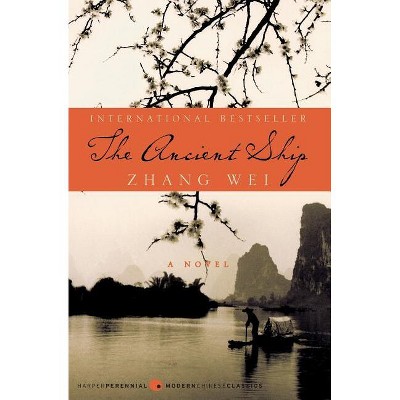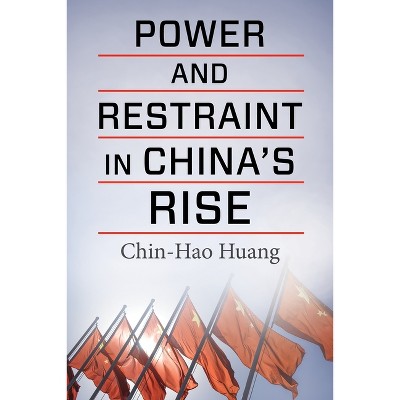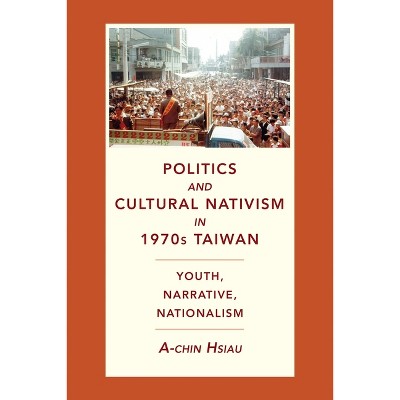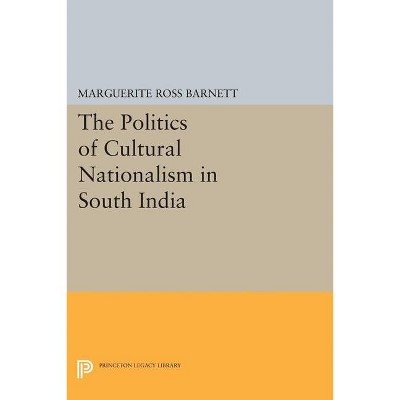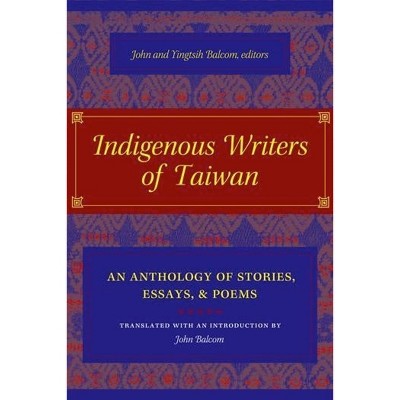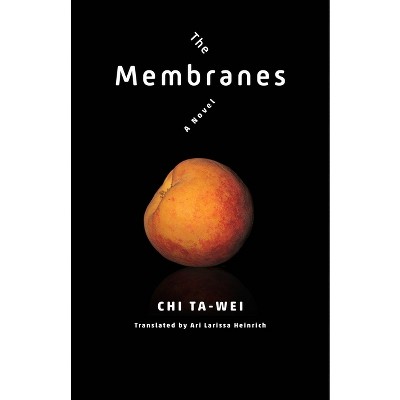Sponsored

Politics and Cultural Nativism in 1970s Taiwan - (Global Chinese Culture) by A-Chin Hsiau (Hardcover)
$140.00
In Stock
Eligible for registries and wish lists
Sponsored
About this item
Highlights
- In the aftermath of 1949, Taiwan's elites saw themselves as embodying China in exile both politically and culturally.
- About the Author: A-chin Hsiau is a research fellow and professor at the Institute of Sociology, Academia Sinica, in Taipei.
- 304 Pages
- History, Asia
- Series Name: Global Chinese Culture
Description
About the Book
"Taiwan increasingly sees itself as a modern nation-state, not as the Chinese government in exile, as its official name "Republic of China" asserts. This attitude shift can be seen in Tsai Ing-wen's recent landslide electoral victory and the decreasing popularity in Taiwan of the One-China policy compromise that has allowed the PRC and Taiwan to coexist, albeit carefully, in the world arena for the last 30 years. In this book, A-chin Hsiau traces the origins of this current moment to the 1970s, when student movements and literary and cultural forces played a pivotal role in the renegotiation of indigenous identity and the renegotiation of the national imaginary"--Book Synopsis
In the aftermath of 1949, Taiwan's elites saw themselves as embodying China in exile both politically and culturally. The island--officially known as the Republic of China--was a temporary home to await the reconquest of the mainland. Taiwan, not the People's Republic, represented China internationally until the early 1970s. Yet in recent decades Taiwan has increasingly come to see itself as a modern nation-state. A-chin Hsiau traces the origins of Taiwanese national identity to the 1970s, when a surge of domestic dissent and youth activism transformed society, politics, and culture in ways that continue to be felt. After major diplomatic setbacks at the beginning of the 1970s posed a serious challenge to Kuomintang authoritarian rule, a younger generation without firsthand experience of life on the mainland began openly challenging the status quo. Hsiau examines how student activists, writers, and dissident researchers of Taiwanese anticolonial movements, despite accepting Chinese nationalist narratives, began to foreground Taiwan's political and social past and present. Their activism, creative work, and historical explorations played pivotal roles in bringing to light and reshaping indigenous and national identities. In so doing, Hsiau contends, they laid the basis for Taiwanese nationalism and the eventual democratization of Taiwan. Offering bracing new perspectives on nationalism, democratization, and identity in Taiwan, this book has significant implications spanning sociology, history, political science, and East Asian studies.Review Quotes
Hsiau provides a most sensible and nuanced interpretive account on how nativist discourse, cultural nationalism, and youth activism in 1970s Taiwan shaped its path toward democracy and thereby transformed global post-cold-war politics. The book is a required reading for students in Asian and transregional studies.--Ping-hui Liao, coeditor of Taiwan Under Japanese Colonial Rule, 1895-1945: History, Culture, Memory
In Politics and Cultural Nativism in 1970s Taiwan, A-chin Hsiau's striking achievement is to demonstrate how committed activists who came of age during the era of martial law used indirect politics to pave the way for Taiwan's later democratization. Hsiau shows compellingly how youth and its passions have the power to remake the world even amid political repression.--Margaret Hillenbrand, author of Negative Exposures: Knowing What Not to Know in Contemporary China
In this theoretically informed and empirically grounded study, A-chin Hsiau locates the genesis of the prevailing cultural nativism in twenty-first-century Taiwan in the postwar generation's "return-to-reality" movement of the 1970s. The work powerfully illuminates the early stages of the ascendance of an island-centered historical narrative that presently rivals, and is poised to supplant, the erstwhile dominant Sinocentric national discourse.--Sung-sheng Yvonne Chang, author of Literary Culture in Taiwan: Martial Law to Market Law
Politics and Cultural Nativism in 1970s Taiwan explores an understudied period and adds nuance to the scholarly conversation about Taiwan identity. Through detailed analysis, the book exposes how history has been rewritten to serve various identity construction efforts in Taiwan. It sheds new light on just how complicated and changeable identity can be. --J. Megan Greene, author of The Origins of the Developmental State in Taiwan: Science Policy and the Quest for Modernization
About the Author
A-chin Hsiau is a research fellow and professor at the Institute of Sociology, Academia Sinica, in Taipei. He is the author of Contemporary Taiwanese Cultural Nationalism (2000) as well as several works in Chinese.Dimensions (Overall): 9.0 Inches (H) x 6.0 Inches (W) x .81 Inches (D)
Weight: 1.38 Pounds
Suggested Age: 22 Years and Up
Series Title: Global Chinese Culture
Sub-Genre: Asia
Genre: History
Number of Pages: 304
Publisher: Columbia University Press
Theme: China
Format: Hardcover
Author: A-Chin Hsiau
Language: English
Street Date: November 9, 2021
TCIN: 1003042901
UPC: 9780231200523
Item Number (DPCI): 247-49-1863
Origin: Made in the USA or Imported
If the item details aren’t accurate or complete, we want to know about it.
Shipping details
Estimated ship dimensions: 0.81 inches length x 6 inches width x 9 inches height
Estimated ship weight: 1.38 pounds
We regret that this item cannot be shipped to PO Boxes.
This item cannot be shipped to the following locations: American Samoa (see also separate entry under AS), Guam (see also separate entry under GU), Northern Mariana Islands, Puerto Rico (see also separate entry under PR), United States Minor Outlying Islands, Virgin Islands, U.S., APO/FPO
Return details
This item can be returned to any Target store or Target.com.
This item must be returned within 90 days of the date it was purchased in store, shipped, delivered by a Shipt shopper, or made ready for pickup.
See the return policy for complete information.
Trending Non-Fiction

$19.31
was $20.98 New lower price
4 out of 5 stars with 64 ratings

$18.28
was $19.58 New lower price
4.7 out of 5 stars with 17 ratings

$4.59
MSRP $7.99
Buy 2, get 1 free select books
4.8 out of 5 stars with 123 ratings

$6.20
MSRP $10.95
Buy 2, get 1 free select books
4.8 out of 5 stars with 33 ratings

$7.09
MSRP $9.99
Buy 2, get 1 free select books
4.9 out of 5 stars with 46 ratings
